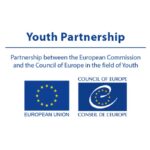Info Library Partial accessibility
Social Inclusion, Digitalisation and Young People
Year of production: 2020
Photo by camilo jimenez on Unsplash
Social Inclusion, Digitalisation and Young People is one of the first major European studies connecting the three topics – social inclusion, digitalisation and young people. It presents a collection of European and national policies, existing digital platforms, online tools and educational and training opportunities available to young people and youth workers or teachers, and a selection of risks and opportunities associated with social inclusion of young people within the digital realm.
Social Inclusion, Digitalisation and Young People
pjp-eu.coe.intAvailable in EN
Authors

Adina Marina (Călăfăteanu) Șerban
Adina Marina (Calafateanu) Serban, PhD in Political Sciences (Comparative European Youth Policies in Romania and Turkey), with extended expertise in grassroots youth work and youth work methodologies and practices, youth participation methodologies and inclusion policies.

Veronica is a professional with more than 15 years of experience in the youth sector, working intensively at the intersection of human rights, education, youth, new technologies and digital governance. She has been engaged in research, public policy and project management initiatives while consulting for various stakeholders such as Council of Europe, UN agencies, European Union bodies and other international organisations. Her recent activity includes contributions on youth and Artificial Intelligence, youth participation in Internet Governance multistakeholder processes, developing media and digital competences for educational and youth actors, understanding the impact of digital transformation on Civil Society Organisations, civic actors and social inclusion of young people.

Institute for Social Research, Zagreb, Croatia; Member of the Pool of European Youth Researchers

Dan is researcher and practitioner specialising in inclusive youth participation with over 20 years experience working with children and young people in the voluntary, public, for-profit and academic sectors. His research focuses on how children and young people's participation can influence policy, as well and the development of participatory structures and processes. Originally a youth worker at local and regional level in the North West of England, he now works throughout Europe and beyond supporting a variety of organisations, to develop their approach to youth participation. In 2017 he was invited to re-develop the consultation process behind the EU’s Youth Dialogue. This engages nearly 50,000 young people from across the EU, and was instrumental in developing the new European Youth Goals. In 2020, his advice paper to the Ukrainian Government led to a revision of a draft law which enabled under 18s to participate in local civic processes.

Lana Pasic
Lana Pasic is a Youth Research and Policy Officer at the Partnership between the European Commission and the Council of Europe in the field of youth. She is coordinating the Pool of European Youth Researchers (PEYR) within the youth partnership, and she is working on the projects related to youth political participation, democratic citizenship education, social inclusion, digitalisation and AI. Lana holds MPhil degree in Development Studies from the University of Oxford, where she specialised in Children, Youth and Development. Previously, she consulted with various international and non-governmental organisations and institutions, including UNICEF, UNDP, Council of Europe, Oxfam, Save the Children, European Youth Forum and SALTO SEE, and has worked with young people from Bosnia and Herzegovina, South-East Europe, Europe, Africa, Asia and Latin America.

The EU-CoE youth partnership is a co-operation programme between the European Commission and the Council of Europe in the field of youth, created in 1998. It is based on the principle of a balanced involvement of the partner institutions in terms of political priorities, management, funding and visibility.




